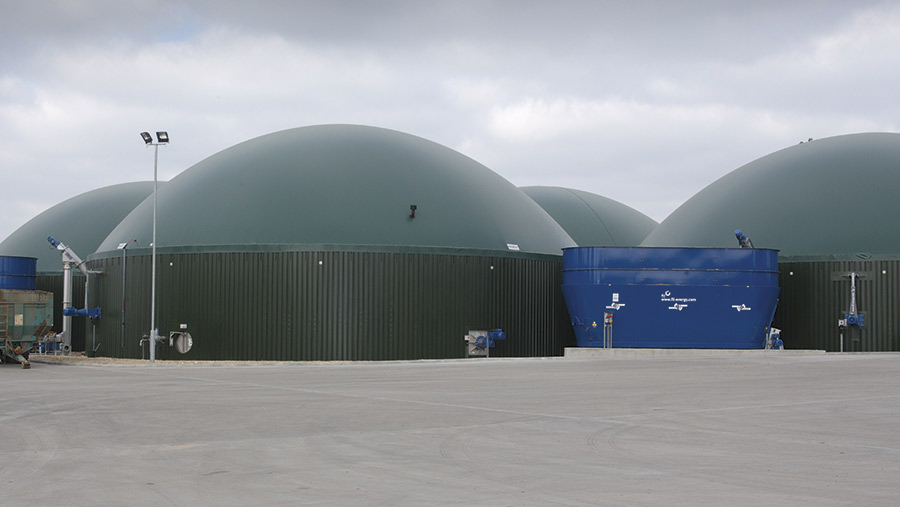Feed-in Tariffs changes do little to help farm AD
 © Tim Scrivener
© Tim Scrivener The outcome of a long-awaited consultation into changes to Feed-in Tariffs (Fits) support for anaerobic digestion has done little to dispel a relatively gloomy outlook for the sector.
Department for Business, Energy and Industrial Strategy (BEIS) increased payments from those initially proposed last May.
However, experts believe the move is unlikely to stimulate significant uptake in smaller farm biogas before the Fits scheme ends in two years’ time.
There was criticism from farm leaders last year when the government unveiled plans to cut tariffs for sub-500kW plants by 27% and scrap support altogether for those larger than this.
See also: Proposed cuts to AD support threaten future of farm biogas
While the higher tariff rates are welcome, continued caps on new deployment and automatic cuts (degression) to tariffs when uptake exceeds these limits remain big challenges for the sector.
Especially as official Ofgem figures show a 12-month queue of projects awaiting pre- or full accreditation.
Only 5MW of AD capacity is able to accredit to the Fits scheme each quarter, including pre accreditations and this capacity is already allocated up to tariff period one (Q1) 2018.
No new applicants can accredit to the scheme until then, explains Bidwells partner Cath Anthony.
When a tariff period cap is breached the payment is reduced by 10% at the start of the next quarter.
That means, effectively there will be a 10% cut each quarter until at least then, even if there are no new applications, she says.
The National Non-Food Crops Centre (NNFCC) warns such cuts will result in a return to unviable tariff levels within a matter of months rather than years, while industry association Anaerobic Digestion and Biogas Association (Adba) says the Fits scheme is likely to close to new applicants sometime next year.
Feedstock restrictions for new plants
A further blow to those considering new crop-based plants is the introduction of controversial restrictions to the amount of energy crops such as maize or grass silage that can be used by AD plants claiming Fits, in a bid to encourage more use of waste and residues in AD.
Payments for electricity generated from feedstocks other than waste or residue will be limited to 50% of the total biogas yield on an annual basis.
Any excess biogas above 50% derived from non-waste sources will not be eligible for support.
The changes will apply to all new AD installations from 1 May 2017, but any plants that have successfully applied for pre-accreditation before that date will not have to meet the new criteria.
Similar rules are being introduced for the Renewable Heat Incentive this spring and many in the industry expected Fits regulations to follow suit.
AD needs replacement support
Ms Anthony says the AD industry must push for a new support mechanism to replace the Fits scheme when it comes to its scheduled end in 2019.
“Given the benefits of AD in terms of avoiding emissions and nutrient recycling as well as a diversified income especially to farmers I think it is important we push for these benefits to be recognised, rather than just a focus on the amount of renewable energy produced.”
Adba chief executive Charlotte Morton says new support for AD needs to be developed as soon as possible so it is in place by the time the Fits is closed.
Generation tariffs from 1 April 2017 |
|
|
AD plant capacity |
Tariff (p/kWh) |
|
0-250kW |
6.93 |
|
250-500kW |
6.56 |
|
500kW-5MW |
2.49 |
